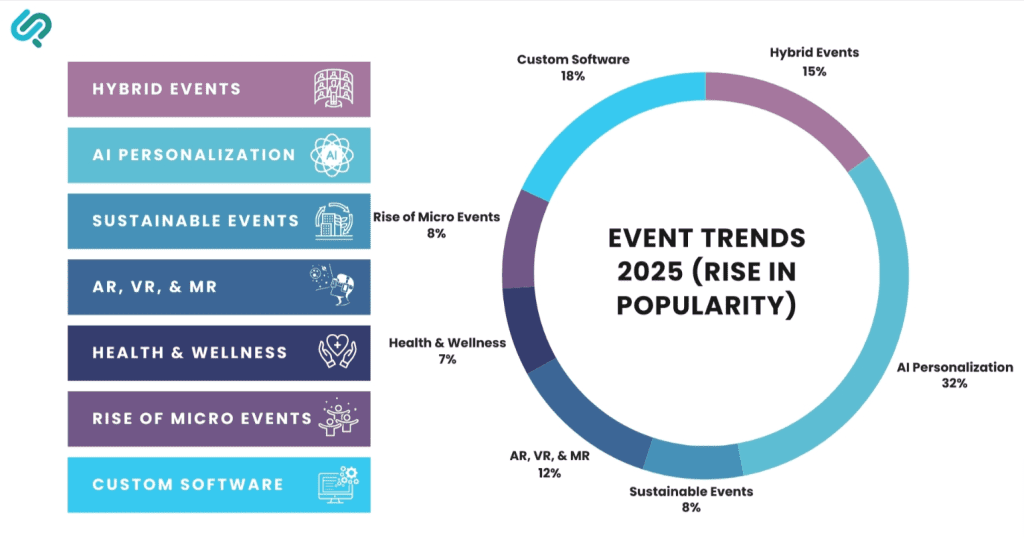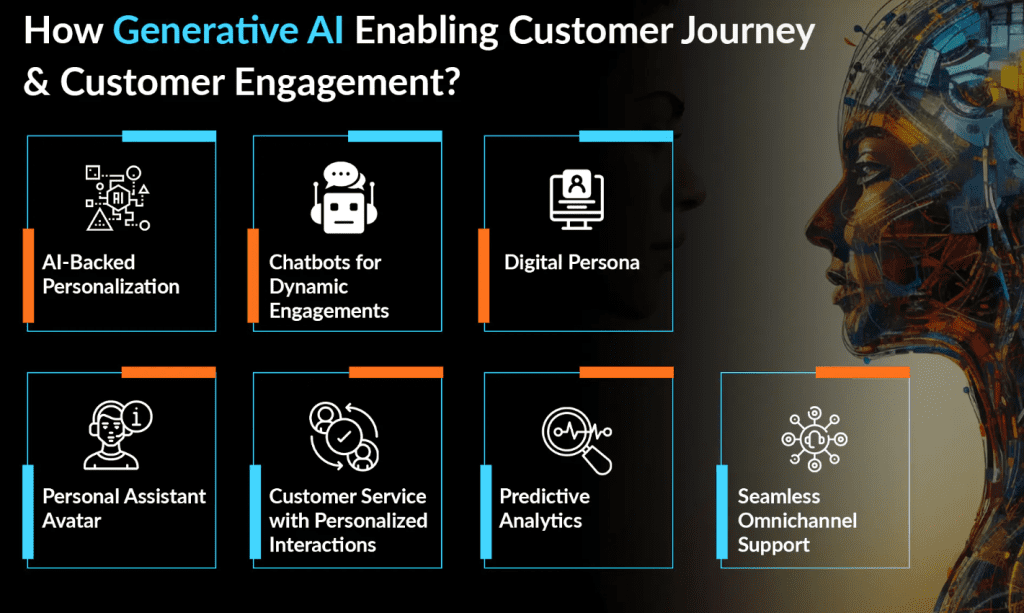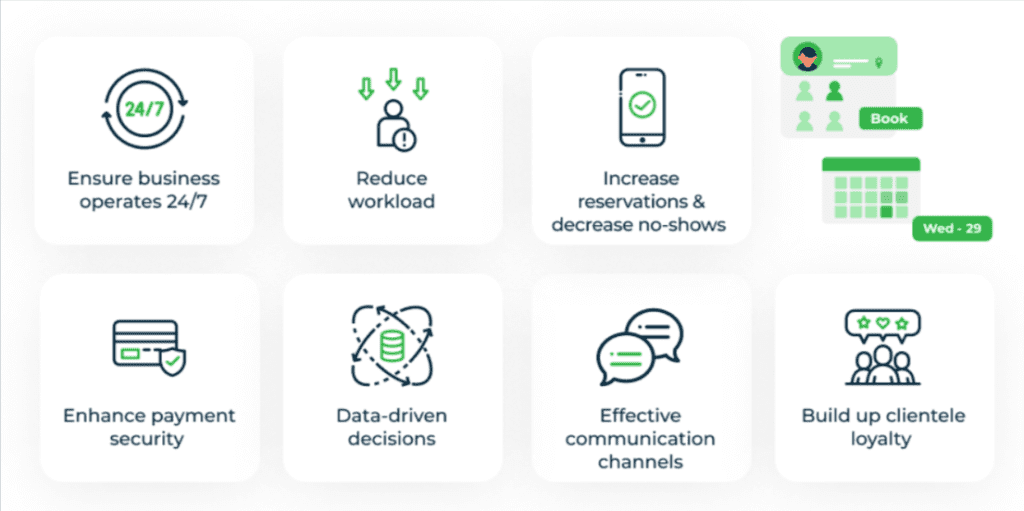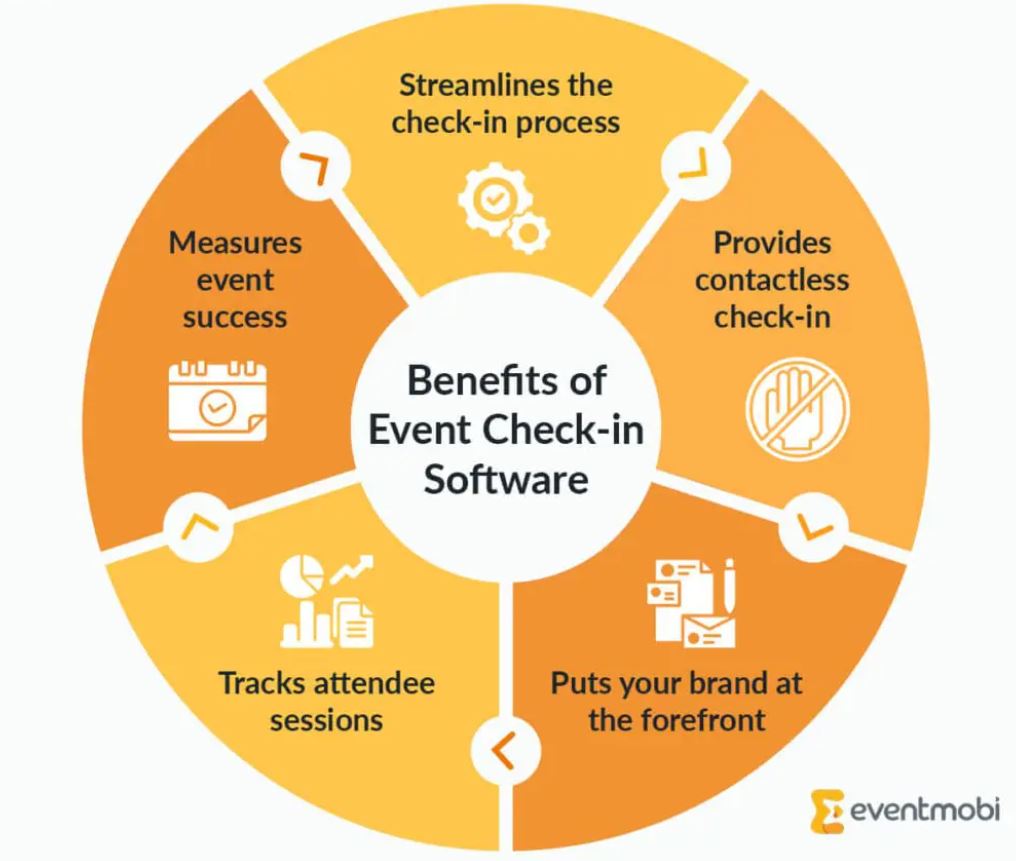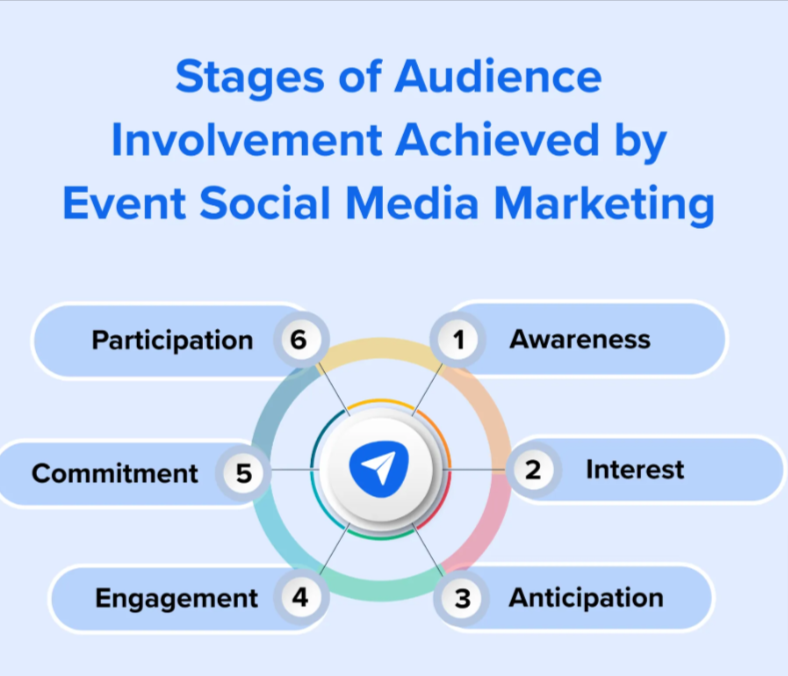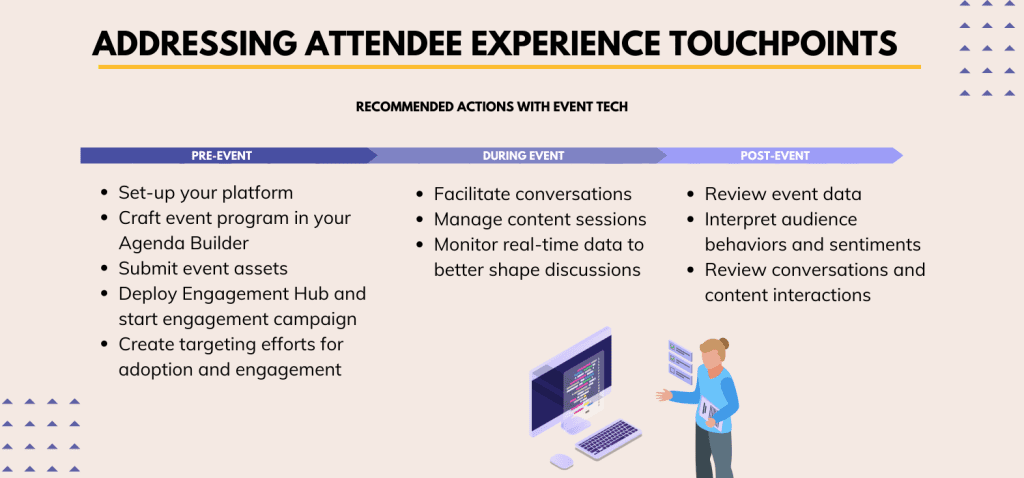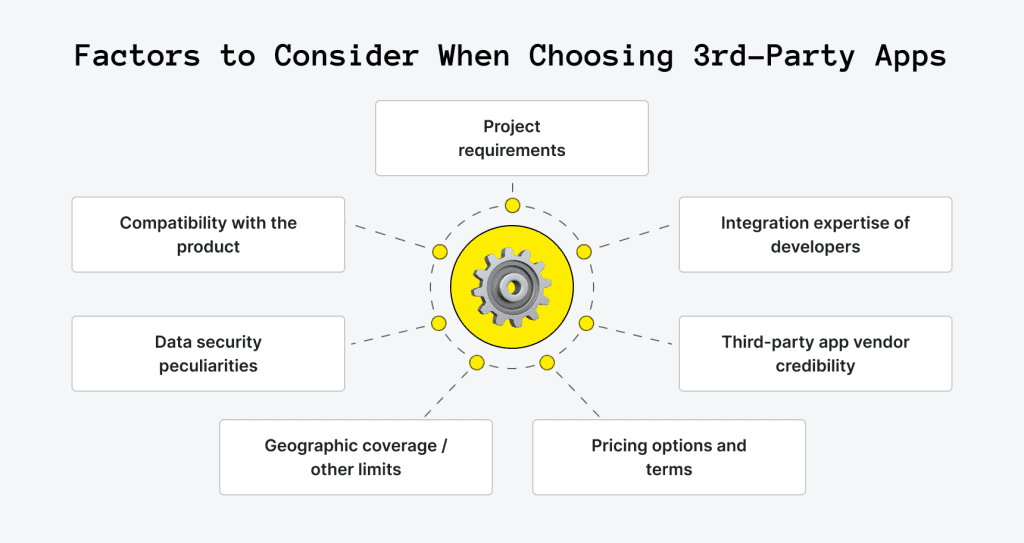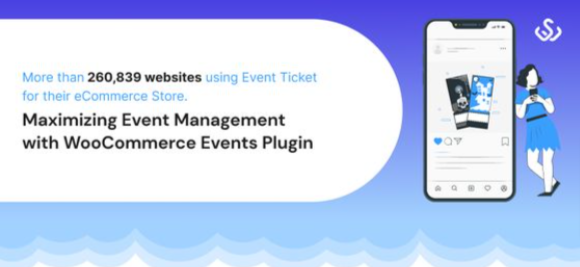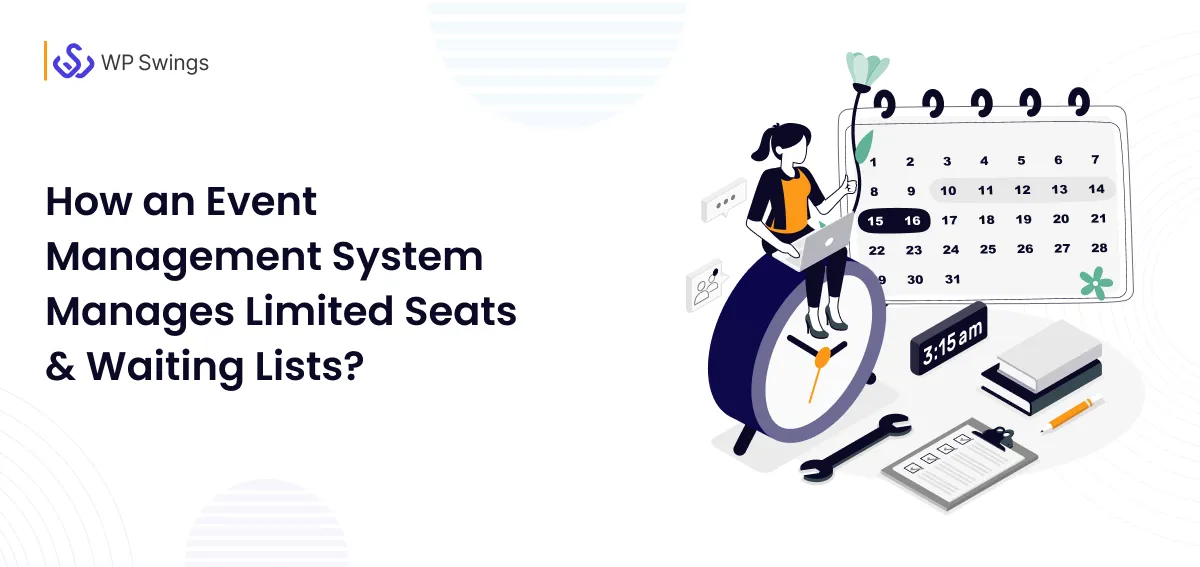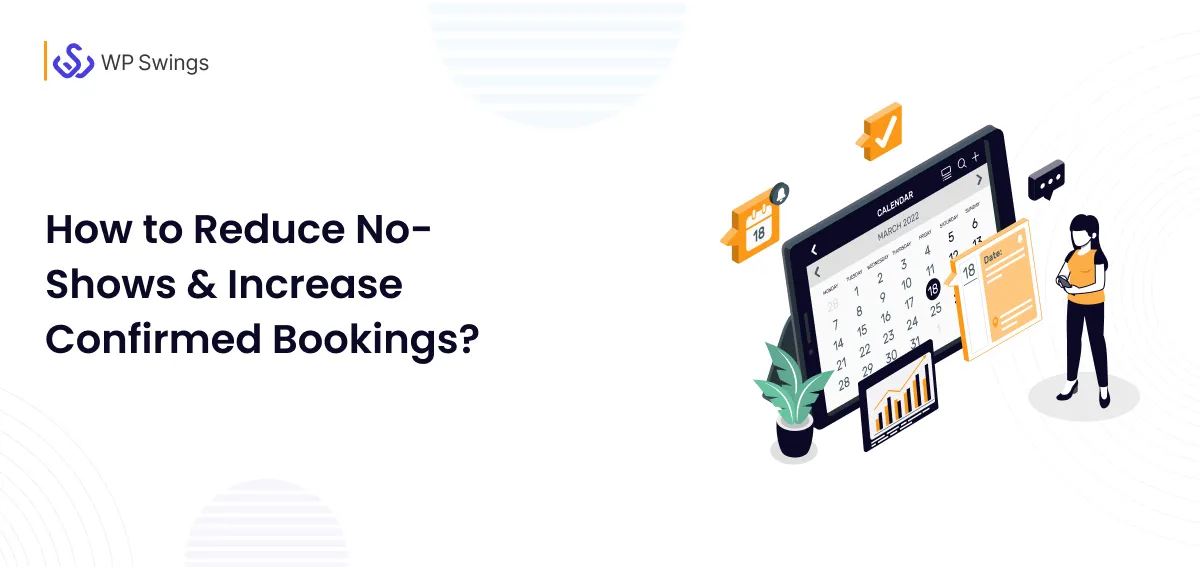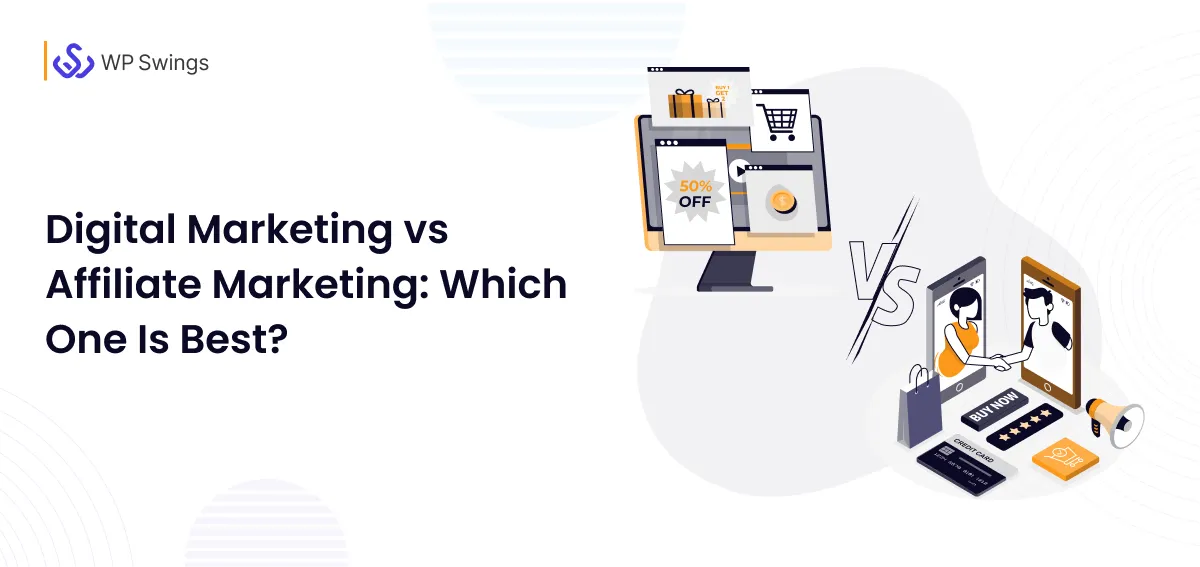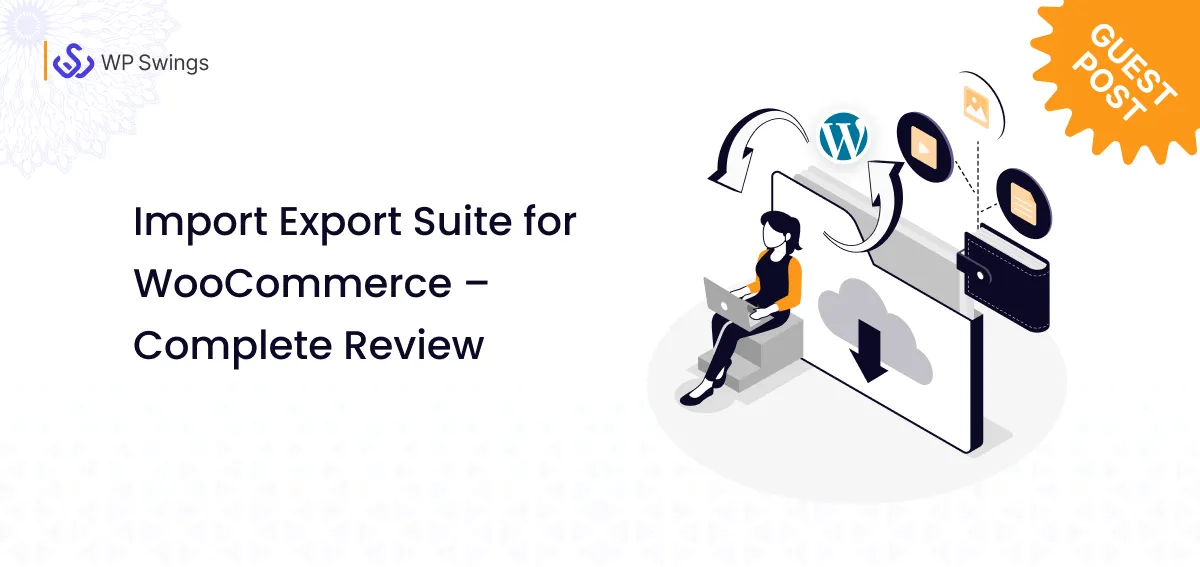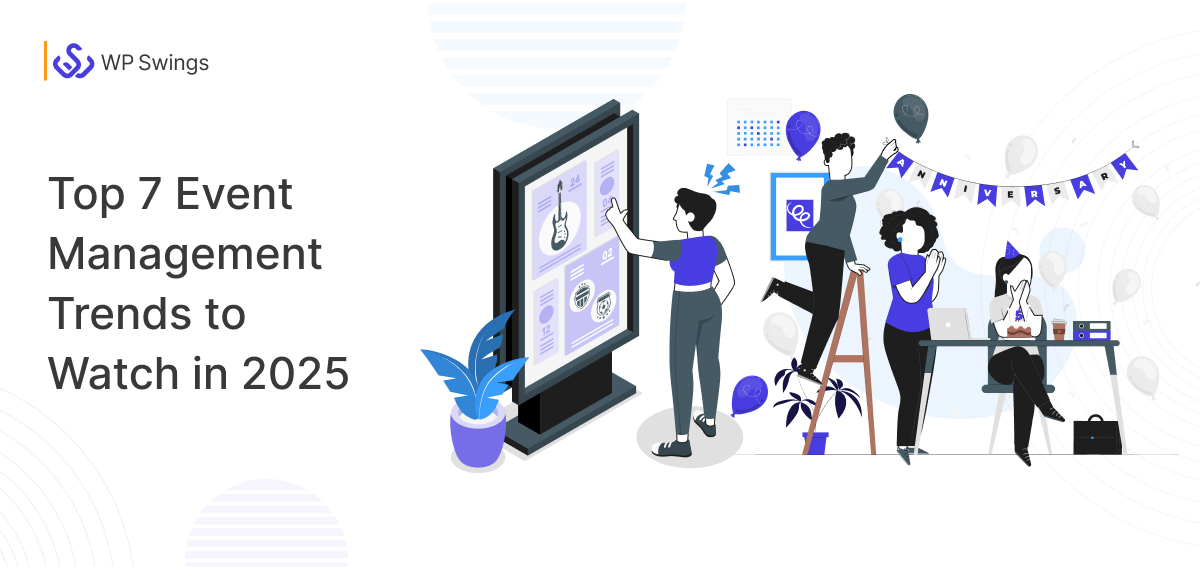
New Year Means, New Event Management Trends!
Planning events is tough, but keeping up with new event management trends is even tougher. The landscape of event management trends is unprecedented. With the rise of different kinds of experiences, technological advancements, and shifting attendee expectations, event organizers must adapt to stay ahead of the curve.
Recent studies show that events are going steady and are estimated to reach $2.7 billion by 2032. It has made an aggressive comeback. It is projected to grow at a Compound Annual Growth Rate (CAGR) of 6.4% by 2032.
In this blog, we will discuss the top event management trends that you should keep an eye out for. The market can get very competitive, and you need all the edge out there!
Keep on reading, we might have a surprise at the end of the blog…
In This Blog, We Will Talk About…
Importance Of Staying Updated With Emerging Trends
It is always suggested to check the water before stepping into it; the same goes for staying up-to-date with emerging trends.
As an event planner or organizer, it is important to study the ongoing event management trends. This will help you arrange events while creating a buzz in the entertainment industry.
Some of the popular event management trends are listed below –
- 82% of attendees prefer in-person experiences but still see value in attending virtually when circumstances require it.
- 35% of marketers consider events to be the most effective strategy for generating B2B demand.
- 44% of attendees have expressed that technology makes the event experience easier and more consumable.
- 52% of business leaders agree event marketing drives more ROI than any other marketing channel.
- On average, in-person events are 47.8% more expensive for planners than virtual ones.
- Using event technology to improve attendee experience – 68.7%.
- 54% of Americans would rather receive a ticket to a live experience than a physical gift.
- 67.5% of attendees agree that it’s vital for events to offer a mobile event app for in-person conferences.
- 77.7% of event attendees say in-person B2B conferences are best for networking.
- 84% of marketers say events let them stand out from the competition.
Now, that the readers are accustomed to the ongoing event management trends and related statistical data, we can jump into the top 7 trends that are here to stay.
Let’s understand what each of these trends means, and how we can make the most of them.
Top 8 Event Management Trends
The world of event management is constantly evolving, and staying updated on current trends is essential to keeping your events fresh and engaging. In 2025, several key trends are emerging that will shape the way events are organized and experienced.
Let’s dive into the top 7 event management trends to watch this year, helping you deliver standout events that capture your audience’s attention.
1. Hybrid Events
For the last couple of years, the event industry has faced a major setback. And there is one term that we have heard repeatedly: hybrid events platform. What is it all about?

The definition seems straightforward: a hybrid event combines in-person and digital elements, customised to each audience for optimal attendee experiences. Each aspect of hosting an event on a hybrid events platform, whether virtual or in-person, should be specifically designed to meet the expectations of each audience, to drive engagement and exploration.
Lucky for event organisers, today’s technology advancements have made it much easier to host hybrid events.
Hybrid events carry the strength of both in-person and virtual events. It not only allows participants to attend virtually through new age technology advancements, but also at the venue where the event is actually taking place. It gives your events global exposure as attendees from different parts of the world can join virtually through a hybrid events platform.
Learn All About Running Successful Hybrid Events!
2. AI-Powered Personalization
This is the most popular amongst different event management trends, revolutionizing the event industry by tailoring experiences to each attendee’s preferences and behaviors, making events more engaging and efficient.
New technological advancements are helping streamline the groundwork for event planners and organizers while enhancing the attendees’ overall experience.
By utilizing AI, organizers can leverage the vast amounts of data analyzed, including attendee interests, past interactions, and real-time behaviors. Fast web scraping proxies can also be used to gather data from multiple locations without restrictions, enabling more accurate and diverse insights. This data can be used to create customized events, suggest relevant networking opportunities, and send targeted communications.
Event planning platforms are now integrating AI to simplify processes like ticketing, provide 24/7 customer support, and even offer AI-based chatbots that assist attendees throughout the event. By leveraging advanced AI chatbot development, these event management tools improve engagement, boost security, and streamline operations.
3. Simplified Mobile Booking
This element is becoming a must-have feature for all event management trends in 2025 as more attendees prefer the convenience of booking events through their smartphones.
It focuses on optimizing mobile interfaces to simplify registration, payment, and ticketing processes. Event management platforms are adopting mobile-first designs and event-tracking software that offer quick load times, intuitive navigation, and seamless payment integration, allowing attendees to register and secure their spots in just a few taps.
Additionally, many event planners are proceeding towards WooCommerce mobile apps that provide real-time updates, personalized event agendas, and easy access to virtual or in-person tickets, ensuring a more engaging and connected experience for attendees.
4. Real-Time Updates
Real-time updates are revolutionizing how event planners manage and communicate with attendees, ensuring seamless event registration and improved event experiences.
As event technology advances, real-time notifications allow planners to instantly inform attendees about schedule changes, venue adjustments, or new networking opportunities, all through their preferred event platform.
This is the event management trend that immediate communication keeps participants informed, enhancing engagement and creating more dynamic digital experiences.
5. Social Media Integration For Event Promotion
Event management trends are here to stay, and this one in particular will always take the spotlight. Event promotion has become an essential strategy in the event planning landscape, enabling event planners to maximize visibility and engagement across multiple platforms. With the rise of event technology, integrating social media into event marketing campaigns allows organizers to effectively promote event registration and create excitement around their event venues and event spaces. Afterward, social media reporting tools help planners gain valuable insights into engagement and campaign success, enabling them to fine-tune their strategies for future events, Attendees can share about the event, that they’re attending on different social media platforms like Facebook, Instagram, and X. Many event planners boost visibility with branded swag from water bottles to custom logo jackets which attendees love to share on social media. To elevate event branding even further, many planners turn to Tailor Brands. The platform offers easy-to-use tools for designing logos, building event websites, and maintaining consistent visual branding across materials. According to numerous positive Tailor Brands reviews, users appreciate its simplicity, professional results, and time-saving features, making it a smart choice for event planners who want their branding to stand out.
This element not only helps to create pre-event buzz but is helpful for post-event, as social media plays a crucial role in maintaining connections and gathering feedback. To make your posts even more engaging, consider using a tool to remove background from images, ensuring the focus is on key visuals without distractions.
6. Key Metrics = Return On Relationships
The meetings and events industry thrives on relationships more than any other sector. Events provide a unique platform for fostering connections and building strong communities, while collaboration among event professionals, event marketing agencies, venues, hotels, CVBs, and suppliers drives the industry forward. Using Metanotes AI can be helpful in capturing and organizing insights from these interactions can help professionals stay on top of important details

Assessing the strength of these connections—known as Return on Relationships (ROR)—will become a key measure of success. in 2025.
What is Return on Relationship (ROR)?
This event management trend refers to the value gained from establishing and nurturing relationships with your audience. Events are a powerful tool for enhancing brand awareness and fostering loyalty—research shows that 77% of individuals trust brands more after in-person interactions at live events.
One effective method to gauge ROR is through engagement scoring. By tracking attendee interactions before, during, and after an event, you can assess how well your event fosters meaningful connections.
Engagement scoring tools help quantify these interactions by assigning points to specific attendee actions, such as participation in sessions, networking, or social media engagement.
7. Flexibility In Attendee Experiences
This trend is emerging as crucial in event management trends, offering participants more control over how they engage with events. Imagine, you’re in a situation where you want to transfer your digital tickets to someone else, implementing this element gives you the freedom to do so!
The following are some of the touchpoints that are crucial to address to enhance the attendee’s experience.
As event planners adapt to the changing landscape, providing flexible options for attending—whether in-person, virtually, or through hybrid models—has become essential. This flexibility enhances accessibility, allowing attendees to choose their preferred format and experience the event in a way that suits their schedules, needs, and comfort levels. Here, tools like WhenAvailable can help further flexibility by identifying mutual suitability and managing it effectively. Flexibility has become a key component of event success, it will continue to shape the way future events are planned and executed.
8. Seamless Integration With Third-Party Software
Yes, we agree that keeping up with these changing event management trends must be difficult, and implementing and managing these events is even tougher. But this does not have to be this difficult; there are several third-party software to make your hassle easy. But marketers need to be smart when choosing the right software. Here are some factors to consider –
Let us take the example of Zapier, a third-party software that helps you automate your event management system with complete ease. Another example can be integrating your online event hosting website with platforms like Zoom, Google Meet, or G-Meet, this not only increases your efficiency but also helps gain the trust of your attendees as the said platforms are well-known in the market. To further enhance the attendee experience, you can incorporate advanced event badge printing software to design and print personalized badges effortlessly, ensuring a professional, organized, and welcoming environment from the moment participants arrive
How Do WordPress Event Tickets Give You The Edge For 2026?
Let’s start by understanding what a WooCommerce event management plugin is: it’s an extension built to seamlessly manage ticketing and event coordination within the WooCommerce platform.
Now, imagine bringing the top 7 event management trends to life using the power of event management tools. Sounds too good to be true? Decide for yourself!
Events Tickets Manager for WooCommerce Pro streamlines the process for merchants to create and customize event tickets, offering different layout options. It allows for the seamless delivery of tickets to customers via email, adds a new product category to the store, and makes it easy for merchants to add new events quickly.
WooCommerce Events calendar, also ensures timely notifications are sent to customers before scheduled events. Within the dashboard, merchants have access to a user-friendly interface, enabling them to effortlessly personalize ticket content and distribute it via email.
This WooCommerce Event Tickets Plugin Is Your One-Stop Solution!
Key Features Of Event Management Tool
Before we proceed with the features of the event tickets manager plugin, it is also crucial to understand how to install this plugin – Sell WooCommerce Event Tickets…
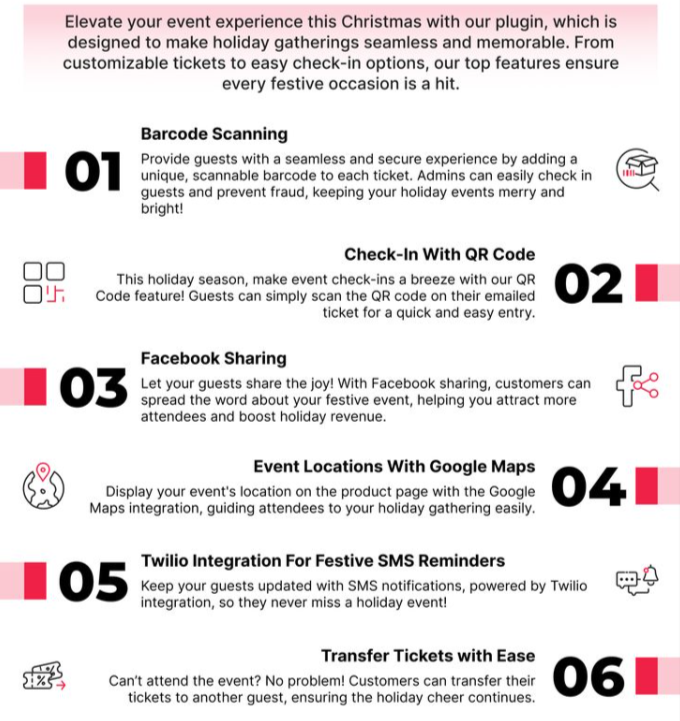
1. Stay Updated Via Event Alerts
By enabling this functionality of WooCommerce event tickets, admins can ensure that their customers are well-informed about all the upcoming events by emailing the information.
2. Display Multiple Locations
Marketers can display multiple locations for a single event. There is no limit on the locations; you can list as many locations as you like.
3. Event Details Via WhatsApp
The admins can utilize this integration to send the event details directly to the customers via WhatsApp, ensuring they stay up-to-date. Using WhatsApp for chatbot functionality, businesses can also automate responses and provide instant support to customer inquiries
4. Show Organizer/Attendees Details
Displaying organizer and attendee details on the event listing page boosts networking opportunities. Also, is a key trend for both in-person and virtual events. Attendees can familiarize themselves with key figures and other participants, encouraging engagement before the event even starts. Additionally, event planners can leverage this feature to foster community-building and create personalized connections during the event.
5. Barcode Scanning
As security concerns grow in the event industry, offering barcode scanning ensures a safe and streamlined check-in process. Additionally, this trend ties into providing real-time updates and secure entry for attendees. With barcode scanning, event planners can prevent fraud. Also delivers a seamless entry experience, crucial for event success in physical and hybrid event venues.
6. Fully Customizable PDF Tickets
With the rise of personalization and custom branding, offering customizable PDF tickets. Empowering event planners to align their tickets with their brand and event theme. Using a logo maker further supports this effort by helping incorporate consistent visual elements, reinforcing brand identity across all touchpoints. Integrating DAM solutions into this workflow also streamlines how teams store, manage, and reuse brand assets, ensuring every ticket design remains accurate, accessible, and on brand.
The WooCommerce event plugin also provides you with multiple layout options to choose from while curating the digital tickets. It helps create dynamic digital experiences and makes event communication more engaging. It further enhances the user experience, giving attendees a professional, cohesive impression from the beginning.
7. Check-In Using QR Code
The QR code check-in offers a real-time, contactless solution, keeping with the trend of event technology. Which enhances attendee safety and convenience. By simplifying the check-in process, and quick access to events. While reducing physical touchpoints, making it ideal for hybrid and in-person events that prioritize health and efficiency.
8. Facebook Event Sharing
Sharing your event on Facebook is crucial for increasing visibility and driving event registration. This aligns with the trend of using social media integration to promote events and engage a wider audience. Event planners can utilize this tool to generate more buzz. And encourage early registrations, and build excitement for the event, turning attendees into active promoters.
By utilizing these features, you can stay ahead of the curve and implement top event management trends that enhance attendee engagement, streamline operations, and improve overall event success.
Success Stories Of Our Favourite Clients
We won’t say WooCommerce event tickets manager is the best plugin! But let’s see what our favorite clients have to say about us…
“Perfect customer service by WP Swings; the plugin works as expected; and the service from WP Swings is great!”
– Garden Rock Band
Ready To Host The Most Exciting Event Of The Year?
With the right tools, event management can be a seamless and exciting experience for event planners and attendees.
By leveraging the top features of Events Tickets Manager, you can easily integrate the latest event management trends. Like AI-powered personalization, real-time updates, and enhanced digital experiences—in your event planning process.
Whether hosting a large-scale or a small intimate gathering, these trends will help you engage your audience, and streamline operations.
Ready to elevate your event planning game? Now’s the time to put these strategies into action and make your next event the most exciting one yet!

